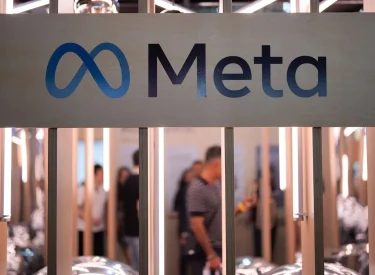Reported Investigation of Meta Raises Questions About Illicit Drug Sales on Social Media
WASHINGTON (TND) - March 20, 2024 6:12 am

File - The Meta logo is displayed at the Vivatech show in Paris, France, June 14, 2023. Meta releases results on Thursday, Feb. 1, 2024. (AP Photo/Thibault Camus, File)
WASHINGTON (TND) – In the era of smartphones, drug trafficking is often done with the tap of a touchscreen.
Dealers and buyers have turned to apps like Snapchat, TikTok, Facebook, and Instagram, according to the Drug Enforcement Agency, often using emoji codes for cocaine, heroin, Adderall, Percocet, Oxycodone and other drugs. Once contact is made on a social media platform, the DEA says the parties often move to an encrypted messaging app like WhatsApp, Signal, or Telegram. Finally, a payment is usually requested via Venmo, Zelle, or a similar payment app.
All of this, the DEA says, is directly connected to overdose deaths, especially when the drugs are laced with fentanyl.

Fake pills containing fentanyl. (Credit: Drug Enforcement Administration)
Earlier this week, the Wall Street Journal reported federal prosecutors are investigating Facebook and Instagram’s parent company Meta for its role in illegal drug sales and whether it profits from those sales.
In a statement to Sinclair, a Meta spokesperson said, “The sale of illicit drugs is against our policies and we work to find and remove the content from our services. Meta proactively cooperates with law enforcement authorities to help combat the sale and distribution of illicit drugs.”
Just last week, Secretary of State Antony Blinken touted some of that cooperation at a session of the United Nations Commission on Narcotic Drugs in Vienna.
“The United States and the (United Nations Office on Drugs and Crime) recently launched a new collaborative effort with Meta, Snap and others to disrupt synthetic drug activity online and instead to have these platforms use their influence to educate users about the risks,” Blinken said, encouraging member-states to participate.
Congress established the Commission on Combating Synthetic Opioid Trafficking as part of the National Defense Authorization Act of 2020 with the task of developing a strategic approach to stop the flow of these deadly drugs into the United States.
We went online, we used normal search terms and pulled up locations, sites. On pretty much most of the social media sites and apps that we used there were examples of both finished products, synthetic opioids for sale and precursor chemicals to make synthetic opioids for sale and delivery,” said David Luckey, a senior researcher at RAND Corporation who served on the commission. “We found that it was extremely simple and easy and inexpensive.
Luckey said it’s critical for social media platforms to self-monitor for illicit activities on their sites. If they are unable or unwilling, he said government regulations need to fill in the gaps.
Action can’t come soon enough: The number of people who died of a drug overdose in 2021 was more than six times greater than it was in 1999, according to the Centers for Disease Control and Prevention. For Americans younger than 50, fentanyl overdose is the leading cause of death, according to the DEA.
“It might not benefit their bottom line,” Luckey said. “But if it keeps the people who are using their sites and platforms and apps alive, I think that’s a tremendous value and if it takes extra money to do that, I think it is incumbent upon these companies to spend those extra monies to provide safety for the users on their sites.”



